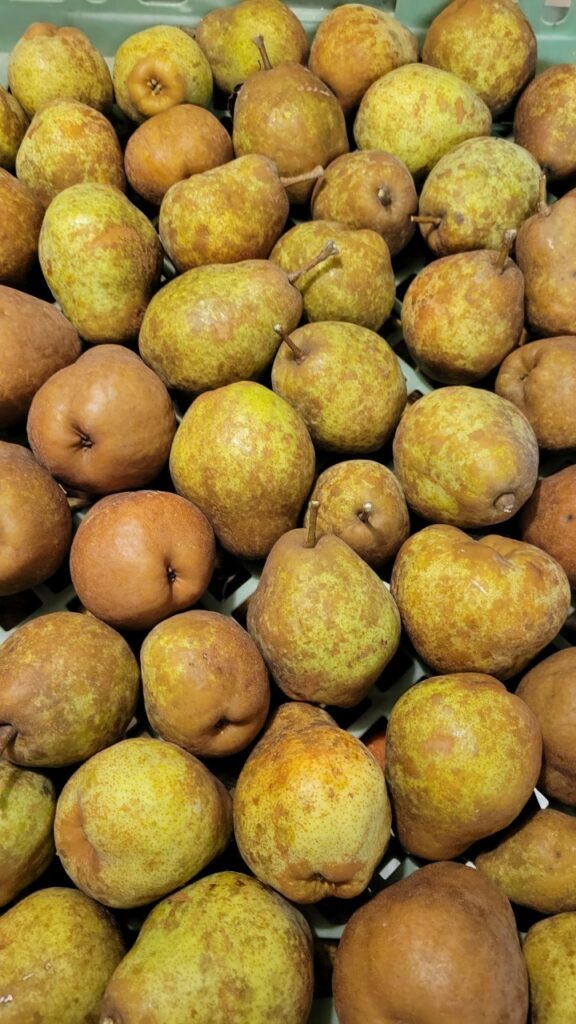Michael Smith, Real Farmer and Farm Economist Ooh boy have we got a lot going on in ag world. Run sent me this a little while ago and I think this is important. The Tricky New Way That Big Ag Is Getting Farm Data, The Atlantic, Claire Kelloway, October 5, 2021 Big data collection is 100% not in the favor of the farmer by corporations. The more we see John Deere et al get tech heavy where they are collecting data about the equipment used and also other ag adjacent corporations such as Cargill who just purchased a chicken processor in Central Texas the more we see the plight of farming. Now, don’t get me wrong, data collection by the USDA and the university extensions has always been a thing, but that was a give and a get. I give the
Topics:
run75441 considers the following as important: agricultural economics, agriculture, Hot Topics, Michael Smith, politics, US/Global Economics
This could be interesting, too:
Robert Skidelsky writes Lord Skidelsky to ask His Majesty’s Government what is their policy with regard to the Ukraine war following the new policy of the government of the United States of America.
NewDealdemocrat writes JOLTS revisions from Yesterday’s Report
Joel Eissenberg writes No Invading Allies Act
Ken Melvin writes A Developed Taste
Michael Smith, Real Farmer and Farm Economist
Ooh boy have we got a lot going on in ag world. Run sent me this a little while ago and I think this is important.
The Tricky New Way That Big Ag Is Getting Farm Data, The Atlantic, Claire Kelloway, October 5, 2021
Big data collection is 100% not in the favor of the farmer by corporations. The more we see John Deere et al get tech heavy where they are collecting data about the equipment used and also other ag adjacent corporations such as Cargill who just purchased a chicken processor in Central Texas the more we see the plight of farming.
Now, don’t get me wrong, data collection by the USDA and the university extensions has always been a thing, but that was a give and a get. I give the extension some soil, they tell me what’s wrong with it. The USDA polls farms to see where they are in the annual cycle and then reports. The reports are useful to farmers because they know if everyone went heavy corn or not and if there is any money to be made in soy, cotton, rice, milo, etc. All of this also informs the general public of a pending dust bowl doom.
Collection of data by corporations has but one goal – market domination.
Due to the pandemic, us small time chicken farmers have gone in heavy on meat birds to either eat ourselves or sell for upwards of $5 a pound at market. Nutrien figured this out as well. Internet sleuths from the corporations saw Shopify stores selling chicken for high prices $25-30 per chicken, adverts on Facebook to the same. Nutrien also started looking at their independent retailers, such as mine.
Long story short, meat bird feed is unavailable to my local retailer and only sold at Tractor Supply for $18 for 40 pound bag. I used to get 50 pounds for $16.49. Alas, this is Texas and we have a Producers Co-op. More on those later.
This monopolistic tendency by the corporations is what Biden was yelling about yesterday. Vertical integration in agriculture only constrains the market.
We have seen this before. Successful Farming magazine used to have a section called the ‘Hog Report’. The editor of the swine section recently retired and did a podcast in July of this year. She told of the first reports she had produced and that what they believed to be hundreds of independent hog farms, the processors had consolidated down to just 40.
Her father, a hog farmer, knew he could no longer compete and decided to retire.
We have also seen this in the poultry business. Because the processors have the contracts with the retailers, and also the USDA inspected facilities and the stock market funds for equipment to process thousands of chickens per hour, There is no way to compete on a large scale.
You either join them or take your wares to a farmers market and stay small time.
Once these corporations have achieved the consolidation, they can dictate price and supply. They can blame “inflation” for expensive chicken. They can blame “worker shortages” on lack of bacon, and unfortunately there isn’t much you or I can do about it aside from write our congress people and demand action.
That being said, if you are in Houston area this Sunday there is a new farmers market on the south side and I’ve got a quarter ton of pears to sell ya.
Run – 2016; The same is happening and has happened with beef. Unless you are a large beef farmer you can not compete. Your costs per pound far exceed that of big Ag farmer who has the acreage and the lower costs.
“What this strategy does is change the focus to “low pricing to consumers” (think China manufacturing of product) from competitive and fair business practices of meat packers and retailers in the market place. In other words, if it is low pricing to the customers, it has to be good. Well, past practices of such environments have shown it was not good in the end. Yes the consumer gets a low price; but it is fatal to small businesses and Labor by leaving a concentrated market controlled by a few corporations. Today, the meatpacking industry is controlled by 4 majors having >80% of the business.
And in the end, the consumer will pay much more.”

